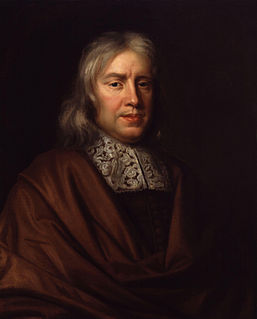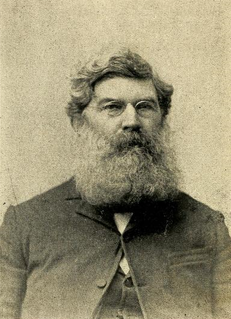A Quote by Thomas Sydenham
We may ascertain the worth of the human race, since for its sake God's Only-begotten Son became man, and thereby ennobled the nature that he took upon him.
Related Quotes
Wherefore, as I have said to you, I, God, have become man, and man has become God by the union of My Divine Nature with your human nature. This greatness is given in general to all rational creatures, but, among these I have especially chosen My ministers for the sake of your salvation, so that, through them, the Blood of the humble and immaculate Lamb, My only-begotten Son, may be administered to you.
Feuerbach ... recognizes ... "even love, in itself the truest, most inward sentiment, becomes an obscure, illusory one through religiousness, since religious love loves man only for God's sake, therefore loves man only apparently, but in truth God only." Is this different with moral love? Does it love the man, this man for this man's sake, or for morality's sake, for Man's sake, and so-for homo homini Deus-for God's sake?
The heavenly Father Whom we worship is the Father of the Truth, namely, of the only-begotten Son, and has the Spirit of Truth, the Holy Spirit, and those who worship Him in these Two do so because they believe in these Persons and act through Them. For the Apostle tells us that it is through the Spirit that we worship and pray (cf. Rom. 8:26), and God's only-begotten Son says, 'No man cometh unto the Father, but by Me' (John 14:6).
Science is being daily more and more personified and anthromorphized into a god. By and by they will say that science took our nature upon him, and sent down his only begotten son, Charles Darwin, or Huxley, into the world so that those who believe in him, &c.; and they will burn people for saying that science, after all, is only an expression for our ignorance of our own ignorance.
There is that in the soul of man which must respond to the highest in virtue. It may not respond at once. Human nature can easily be over-faced by examples too remote and austere. Moreover, human nature can easily deny God because the whole race has long been in rebellion against Him. Yet there is that in human nature which calls out to the supreme examples of virtue: owns, as it were, the intention of God who made it, and feels the unmistakable homesickness of the soul.
Even the Savior of the world, the Only Begotten Son of God, was obliged to come to earth and to take upon himself an earthly tabernacle. He experienced joy and sorrow, happiness and grief, lasting satisfaction and frequent disappointments. As Paul has written, "Though he were a Son yet learned he obedience by the things which he suffered; and being made perfect, he became the author of eternal salvation unto all them that obey him."
This religion teaches that 6,000 years ago God made the first man out of dust - not even mud - and the first woman out of a bone; that God cursed the whole human race because a snake made the woman eat an apple; that God had a son by another man's wife, and that he had this son murdered in order to keep himself from sending all the human race to hell.
I call that god the Little G. Because the god that we've been worshipping is not to me the Supreme Creator. Anybody who needs to control and make people feel ashamed. . .It's like, 'I send my only begotten son. . .' Well you know, that concept of sending a son where we as women could, like, breastfeed him and give him milk, but he's not gonna soil his dinky with us? What's that all about?
The problem of reconciling human suffering with the existence of a God who loves, is only insoluble so long as we attach a trivial meaning to the word "love", and look on things as if man were the centre of them. Man is not the centre. God does not exist for the sake of man. Man does not exist for his own sake. "Thou hast created all things, and for thy pleasure they are and were created." We were made not primarily that we may love God (though we were made for that too) but that God may love us, that we may become objects in which the divine love may rest "well pleased".





































